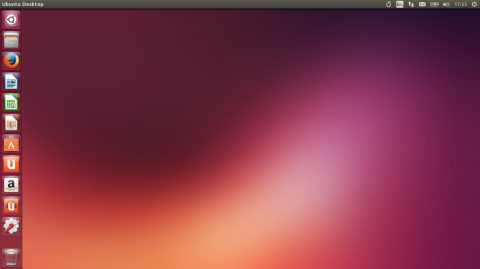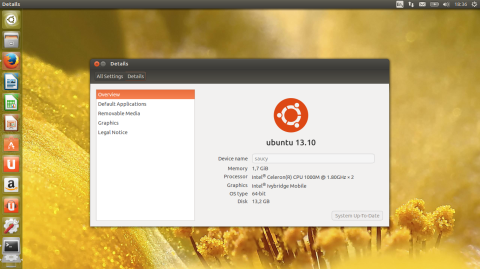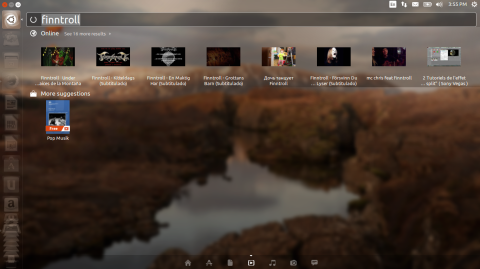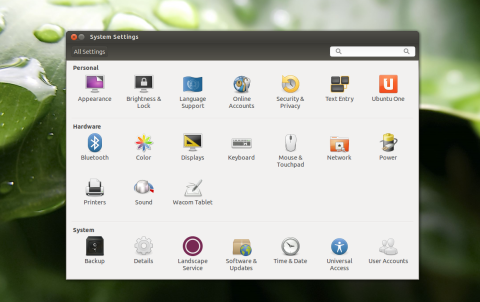Initially scheduled to ship with the Mir display server, and XMir as a fallback solution, Ubuntu 13.10 postponed Mir as default replacement for X due to the fact that Mir is not yet considered ready for end-users.
With Saucy Salamander, Ubuntu ships a solid desktop based on the work that has been done since 13.04, with few new features that are noteworthy, and no major changes. Saucy will be supported for 9 months, until July 2014. With 13.04 support ending very soon, Saucy is a good replacement to feature newer packages and a decent lifespan.
For this review I used the 64-bit Desktop ISO image. Let’s see what are the main applications offered by Saucy:
Ubuntu 13.10 comes with the following major packages:
- Linux Kernel 3.11.0
- Unity 7.1.2
- X.org 7.7
- LibreOffice 4.1.2.3
- Firefox 24.0
In addition, Ubuntu comes with the Nautilus file browser, Rhythmbox music player and Totem movie player.
The left panel includes the usual shortcuts to Dash, Nautilus, Firefox, LibreOffice, the Ubuntu Software Center, Ubuntu One, Amazon, Settings, Trash and removable devices.
Mir has not made it into Saucy since it’s not very stable, so X.org is still the underlying display server. However, you can try Mir by following these instructions from the Ubuntu Wiki.
One of the first things I do is to disable the overlay scrollbars Ubuntu comes with by default, so that I can have the classic scrollbars instead. To do this, open a terminal (press Ctrl+Alt+T) and type gsettings set com.canonical.desktop.interface scrollbar-mode normal. For me the default overlay scrollbars look just plain ugly and seem hard enough to maneuver.
The top panel now comes with a keyboard layout switcher by default:
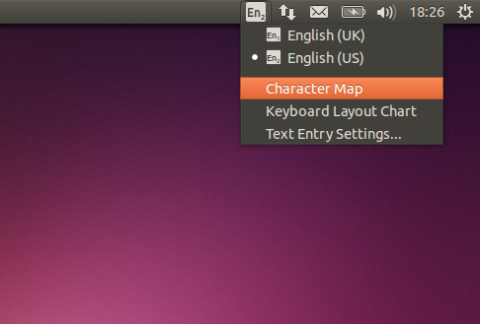
You can access the character map and the keyboard layout chart from here.
Although Ubuntu 13.10 was supposed to be stable enough, Dash seemed to me pretty buggy, sometimes refusing to start right away, and making it impossible to start applications. I have to admit, I’m not a fan of Unity nor Ubuntu’s approach for a desktop, and I stick with KDE whenever I have the chance since lack of advanced configuration options makes for an unproductive desktop in my opinion.
One small annoyance that I could catch was that when you click the Restart… option in the bottom right-hand corner of the screen you will be shown two options to choose from (Restart and Shutdown), with the latter being focused by default, so if you press Enter the computer will shutdown, although the option you initially selected was restart. This can be a little confusing to new users.
Overall, Saucy makes for another typical Ubuntu release, having the advantage of being based on polished, well-tested packages, without a lot of new changes, at least from a user’s point of view. With support for 9 months, it is a good choice for Ubuntu users, at least until 14.04 gets out.




